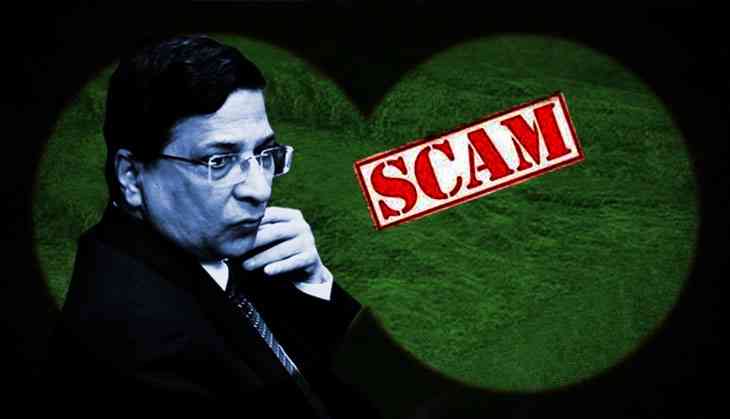Cloud over Dipak Misra as Chief Justice: ICJ claims he is tainted

A cloud hangs over the appointment of the next Chief Justice of India. Though incumbent CJI JS Khehar recommended the name of Supreme Court Justice Dipak Misra as his successor on 25 July, there is a roadblock that must first be passed before such an appointment is made.
The obstacle in Misra's path is the International Council of Jurists (ICJ), which has sought a probe against alleged irregularities during his career. ICJ also plans to approach the Centre to oppose his appointment.
ICJ had submitted a petition urging Justice Khehar to appoint an in-house committee consisting of Supreme Court judges to look into allegations of Justice Misra’s alleged involvement in a land scam in Odisha while he was an advocate.
The scam
The alleged land scam involved the illegal transfer of large tracts of government land in Bidanasi and other areas of Cuttack in favour of private persons. According to ICJ president Adish C Aggarwala, Misra got the land allotted in 1979 when he was an advocate.
ICJ, in its petition, has referred to a CBI report before the Odisha High Court in which it had indicted him for “fraudulently” acquiring a plot of land in Cuttack.
“Misra was among 300 people who were allotted the public land in Cuttack. Many of the beneficiaries including Misra, who was then an advocate, made false declarations that they didn't own any land so that they could get the plots,” Aggarwala told Catch.
Despite an order by the Orissa High Court, he says, Misra continued to wrongly possess the land. Misra, who became a Supreme Court Judge in 2011, gave up possession only in 2013 after the CBI indicted him.
“Following a petition, the High Court in 2011 ordered the Cuttack revenue department to conduct an enquiry into the allegations. The probe found the allegations to be true and revenue officials were ordered by the court to take back the possession of land allotted to Mishra and many other influential people," Aggarwala says.
“By that time Mishra had become a SC judge so, the revenue authorities did not take back the possession. Subsequently, the High Court ordered the CBI to probe the matter. The CBI, in its report to the court, indicted Misra of fraudulently obtaining the land. It said that Misra had given a false declaration of being landless and showed lower income in order to be entitled to be a beneficiary of the land meant only for the poor," he added.
“When Misra learnt about the CBI report, he quickly gave up the possession of the land to save himself,” says Aggarwala.
Strong opposition
The ICJ, comprising jurists from across the globe, is in the process of petitioning the Modi government against Misra being appointed the CJI.
“It appears that CJI did not consider our complaint and recommended his name. It is his duty to consider our complaint and appoint an in-house committee consisting of Judges of the Supreme Court to look into the allegations,” says Aggarwala.
“We will make a representation to the Government against Misra. A judge who has been accused of fraud and a CBI report is pending against him, cannot be made the CJI,” he said.
Earlier retired Orissa High Court judge, Justice BP Das, who had ordered the CBI probe in the land scam case, accused Misra of scuttling his candidacy as chief justice of the Punjab & Haryana High Court.
“In January, I ordered the CBI probe and three months later, in March 2012, my name came up for appointment as Chief Justice of Punjab & Haryana High Court. I had heard that my name was opposed by Justice Dipak Misra, but I don't have any record with me. Well, but for this, I would have retired as chief justice,” an Economic Times report from last year quoted Das as saying.
Currently the seniormost SC judge after Khehar, Misra served as the Chief Justice of Patna and Delhi High Courts before being elevated as a SC judge in October 2011.
Questionable calls
The Justice Misra-led SC bench in 2016 mandated the playing of the national anthem before movies in cinema halls. The judgment attracted severe criticism from several quarters for imposing a notion of nationalism on people.
Earlier, while heading a Madhya Pradesh High Court bench, Justice Misra had banned the screening of Karan Johar's blockbuster Kabhi Khushi Kabhi Gham for commercially exploiting the national anthem.
Taking strong exception to the sequence in the film in which a boy sings one part of the anthem and his mother completes it, Justice Misra - writing the judgement - had then held that "the national anthem has been sung as if it is a song of advertisement for a commercial purpose" and banned the film's screening unless the scene was deleted.
He also led the apex court bench which rejected the 1993 Mumbai serial blasts convict Yakub Memon's appeal to stop his execution.
First published: 26 July 2017, 17:05 IST
